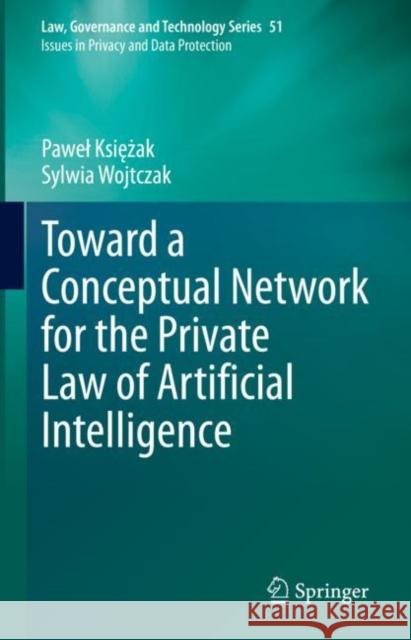Toward a Conceptual Network for the Private Law of Artificial Intelligence » książka
Toward a Conceptual Network for the Private Law of Artificial Intelligence
ISBN-13: 9783031194467 / Angielski / Twarda / 2023 / 296 str.
Toward a Conceptual Network for the Private Law of Artificial Intelligence
ISBN-13: 9783031194467 / Angielski / Twarda / 2023 / 296 str.
(netto: 613,40 VAT: 5%)
Najniższa cena z 30 dni: 616,85
ok. 22 dni roboczych.
Darmowa dostawa!
This book provides a set of proposals for the new conceptual network required in order to establish civil law rules for a world permeated by Artificial Intelligence. These proposals are intended by their authors to push the debate on the new civil law forward. In spite of the natural conservatism of jurists, some innovative or even futuristic ideas are called for, also because the future, even this not-so-distant one, is difficult to foresee. Paradoxically, and unlike in the past, this lack of knowledge must not stop us from planning. If it does, humankind may, as some pessimists already claim, lose its chance to win the battle for control of the world.The rise and expansion of Artificial Intelligence and robotics in recent years has highlighted a pressing need to create a suitable legal framework for this new phenomenon. The debate on the subject, although wide-ranging and involving many new legal documents, is still quite general and preliminary in nature, although these preparatory works illustrate the very real need to develop appropriate new civil law arrangements. It is exactly the branch of private law where the necessity of these new rules appears to be the most imperative. Autonomous vehicles, medical robots, and expertise software raise fundamental questions on aspects of civil liability such as culpability; whereas the growth in popularity of automated, intelligent software systems for concluding contracts requires a new approach to many fundamental and deeply rooted elements of contract law, e.g. consciousness, intent, error, deception, interpretation of contracts and good faith. Ruling on these specific matters demands the identification and clarification of certain key points, which shall become the foundation for constructing AI/robot civil law.
This book provides a set of proposals for the new conceptual network required in order to establish civil law rules for a world permeated by Artificial Intelligence. These proposals are intended by their authors to push the debate on the new civil law forward. In spite of the natural conservatism of jurists, some innovative or even futuristic ideas are called for, also because the future, even this not-so-distant one, is difficult to foresee. Paradoxically, and unlike in the past, this lack of knowledge must not stop us from planning. If it does, humankind may, as some pessimists already claim, lose its chance to win the battle for control of the world.











